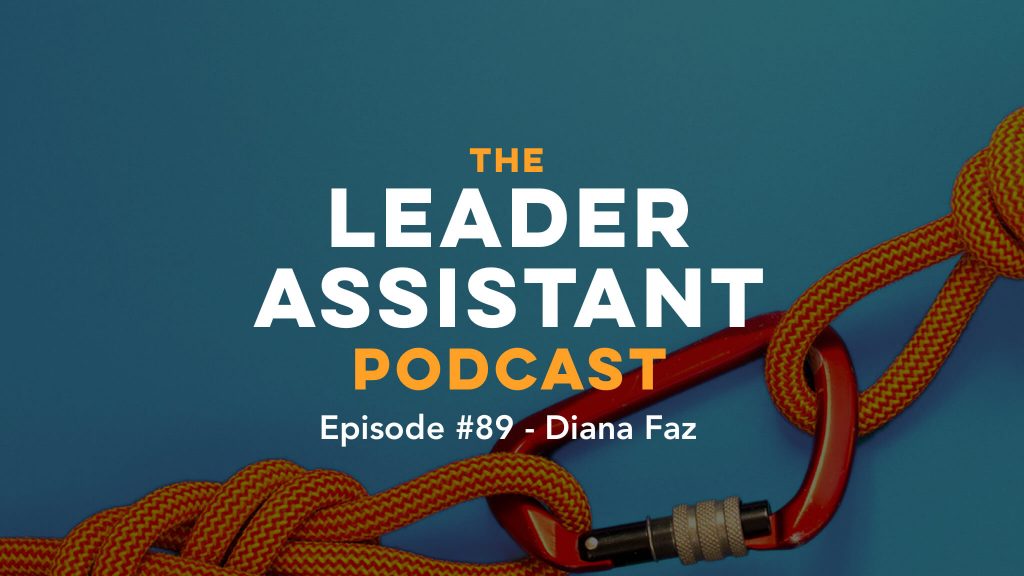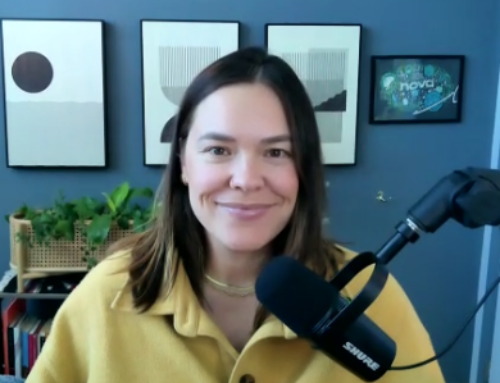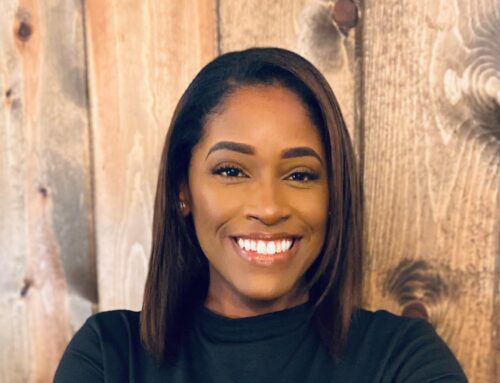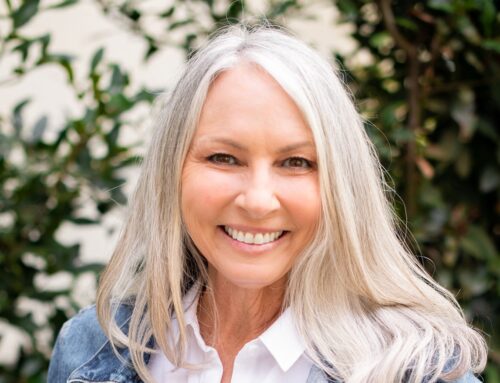Diana Faz is a seasoned, top level assistant with 15+ years of experience, a global EA mentor and advocate, and an all-around amazing person.
Diana opens up about her experience with burnout during the pandemic, and also shares practical tips on managing email, networking, leading a team of admins, and anticipating your executive’s needs. Enjoy our conversation!
Note: The quote Diana references at the end of the episode was in Simon Sinek’s book Leaders Eat Last, but the quote was not attributed to Simon. It was in the foreword written by George J. Flynn, retired Lieutenant General, US Marines, and here it is again in case you missed it:
“Great leaders truly care about those they are privileged to lead and understand that the true cost of leadership privilege comes at the expense of self-interest.”
LEADERSHIP QUOTE
Raising the bar requires all of us looking in the mirror and challenging ourselves to commit to a plan for our ongoing development and to bring our best to each day. I am holding myself to this standard –and expect and ask for you to do the same.
– Larry Fink
JOIN THE FREE COMMUNITY
Join the Leader Assistant Slack Community here, or the Facebook Group here for bonus content and to network with other assistants who are committed to becoming leaders!
CONNECT WITH DIANA
ABOUT DIANA
Diana Faz is a seasoned, top level assistant with 15+ years of experience spanning across consulting, sports & entertainment and finance. This diversity has helped Diana hone her skills at making executives more efficient and effective.
Diana enjoys relaxing by making her own natural, organic body products and incorporates yoga stretches in her everyday life. She does not believe there is such a thing as reading too many books.
THE LEADER ASSISTANT BOOK
Download the first 3 chapters of The Leader Assistant: Four Pillars of Game-Changing Assistant for FREE here or buy on Amazon here.
SUBSCRIBE
Subscribe to The Leader Assistant Podcast so you don’t miss new episodes!
You can find the show on Apple Podcasts, Spotify, Google Podcasts, Pandora, and Stitcher.
Join my email list here if you want to get an email when a new episode goes live.
LEAVE A REVIEW
If you’re enjoying the podcast, please take 2 minutes to rate and review the show on Apple Podcasts here. Each review helps me stay motivated to keep the show going!
—
EPISODE TRANSCRIPT
Diana Faz 0:00
Hello, I’m Diana Faz. Today’s leadership quote comes from Larry Fink, CEO of Blackrock. Raising the Bar requires all of us looking in the mirror and challenging ourselves to commit to a plan for our ongoing development. And to bring our best self to each day. I am holding myself to the standard and expect an ask for you to do the same.
Podcast Intro 0:25
The Leader Assistant Podcast exists to encourage and challenge assistants to become confident game changing leader assistants.
Jeremy Burrows 0:35
Thank you so much for listening all I’m old. Hey, everyone. Thanks for tuning into The Leader Assistant Podcast. It’s your host, Jeremy Burrows. And today I have the pleasure of speaking with Diana Faz. Diana is executive assistant has been an executive assistant for several years, and we’re gonna get into her story, Diana, how’s it going? It’s going pandemic. love it love it. Well, let’s just jump right in. And why don’t you tell us when and why you became an executive assistant or administrative assistant?
Diana Faz 1:15
Well, I think like so many assistants, I fell into the role. And I fell in love with it. But I had no idea that I could make a career out of it. I mean, what can I say I was young and stupid. But then I met a really great seasoned da Kate, who took the time to tell me I was very good at the role. And why. And she also told me, I should consider making a career out of it. I’m following the profession, you know, following the profession into a career and to which I said what their careers that came along with this. As I mentioned, I was young and stupid. So but that’s, that’s the unglamorous beginning of my role of my career.
Jeremy Burrows 2:00
So did you already kind of love the role before you discovered that it was a could be a career?
Diana Faz 2:07
I did, I did. But at that point in time, everybody around me was taking assistant roles, because that’s what you did until you figured out what you wanted to do as a career. So I wasn’t really very cognizant of the fact that that was a career. I mean, obviously I do now. And I’m happy to talk to anybody who is early in their career and let them know as the the hows and whys. But it’s been it’s been exciting so far.
Jeremy Burrows 2:40
Yeah. I mean, what would you say to someone listening that that is just discovering that as well is kind of back where you were, then? How would you encourage them to pursue it as a career?
Diana Faz 2:53
Okay, so first and foremost, I think it’s always important to find something I know, it’s, it sounds so cliche, but to find something that you really love doing. For me, it was being an executive assistant, because I like you enjoy the helping aspect of the role. How do we help people every single day, and you get paid for it? So that’s, that’s one thing. And the second thing is, I think a lot of people stop because they don’t see a financial future in it. And that, as you know, couldn’t be further from the truth. If you really truly excel in the profession
Jeremy Burrows 3:43
Yeah, it’s very, very interesting. I was even talking to an assistant the other day about salary ranges and you know, she, she was totally clueless as to how much or sorry, how little she was actually making in you know, compared to her area. And people just don’t know what they don’t know. And it’s, it’s awesome to have people like your friend, I think you said Kate, telling you with this is actually a career this can be a career. And so that’s part of why I started the podcast so that hopefully other assistants can hear that that word as well.
Diana Faz 4:26
Well, I can tell you we all appreciate it Jeremy.
Jeremy Burrows 4:30
So before we get into talking about kind of the pandemic and want to talk about some self care, let’s let’s let’s share a couple of practical tips for assistants listening in. So let’s start off with email. What’s your number one tip for managing your executive inbox?
Diana Faz 4:52
So my favorite tip that I give assistants and of course this is more geared towards larger organizations, um, but it’s to have a dedicated mailbox for your executive or executive team. For large bulk communications, it saves a lot of frustration, not to mention all the cleanup. If you tried to send something from your boss’s email box, to 500 people, it gets more than a little messy. Having a dedicated email box saves all of that not to mention that you can give access to several different people. So that all the people that need to review the drafts can do so in one spot.
Jeremy Burrows 5:34
And do you mean, when you say email box? Do you mean like actual email, like list account? Or do you mean an actual email account that they can go into and review if that makes sense
Diana Faz 5:45
and actual email account. So I apologize, I forget that we do have two schools of thought, which is Microsoft and the G Suite. But if you have a dedicated mailbox, you know, Smith Corporation, executive team, then it’s easier to send out mass mailings from that, and to have better control over it not to mention that it also can provide an easy access for people, you can use that mailbox on different links in your intranet, and even for some external things where people can just email the inbox directly of that mailbox directly. And different people have access and can delegate the email to whoever is appropriate to respond to it. That so that’s one less thing that your executive needs to worry about. Unless they need to get involved. So it’s time consuming. I mean, it’s it’s less time consuming for them. And it’s less time consuming for you, because then you have less to clean up.
Jeremy Burrows 6:51
Nice. So let’s talk about networking. We have you came out to Kansas City for a leader system event. You brought, I think, probably one or two from your team from New York. Josephine. Yeah, Josephine, and hi, Josephine. And, you know, we we network. This is right before COVID. So we like, you know, we had we got lucky and we’re still able to have that event and everything kind of went, you know what, but what tips would you have for those who are trying to put themselves out there and network with other assistants?
Diana Faz 7:34
Well, first and foremost, when you’re networking, I mean, be genuine about it. I think one of the reasons that you and I have been able to connect this because we have been very genuine with with what we were seeking, which is wanting to find equal thought partners, right, we wanted to be able to, to discuss and, you know, just definitely have somebody to connect with that thinks like we do. And that doesn’t think like we do, because there are things I mean, I’ve learned, I’ve learned a lot from from different points of view. But it’s all in the interest, at least for me, in the interest of improving the executive community. That for me is the reason why I enjoy I mean that’s one of the aspects of networking or the aspect of why we went out to to February and got the last hurrah and before the pandemic hit with but So with just be genuine, whatever your reasoning is, whatever you’re trying to accomplish, be genuine about it, that people will see through you if you don’t and definitely do a little bit of homework. I mean there is the minimum if you’re going to ask someone to be connecting on them with them on LinkedIn know what it is that they do who they do it for, you know, the bare minimum you should know you know, not not just everybody who has executive assistant title but targeted why why do you want to connect with this person? I think you’re you’re really good about reminding people that a personal note and why they want to connect this is always you eases the connection than just cold calling. And speaking of cold calling, please if that’s what you’re doing. Don’t connect with someone that immediately ask them to recommend you for a job working for some CEO that you know it’s not okay in person. It’s still not okay on LinkedIn.
Jeremy Burrows 9:34
There you go. Nice little LinkedIn tip there for you. How do you anticipate your executives needs?
Diana Faz 9:44
Wow, okay, well, so first off to anticipate your executives needs. You can’t anticipate anything if you don’t know where they’re going. So you do you know what your executives goals are? Yes, but That’s great. Do you know how they aligned to the department’s goals? Yes, fantastic, you’re on a really great path, then you must also know how they aligned to the company wide goals, initiatives, mission and vision. Once you got all that, fantastic, you are a superstar, this is now going to be your compass to help you direct your executives needs. And what I mean by that, because I know it sounds very vague. When you know, the number one goal, say, for example, is to roll out the blue widgets by October 31st, then you know that setting up those meetings is pretty high priority. And when you see that Joe sentier, Executive Reports on the impact of teal blue on consumers versus royal blue, then you may want to put that at the top of the executives reading list. So for me, that’s that’s how I help 20 That was what helps me anticipate my executives needs.
Jeremy Burrows 11:04
So that ties into kind of the great, I love the I love the example. The colors, it’s very, very clear and and helpful. What’s one of the one of the common questions I get is, and even more so now, during a pandemic, how can I add value to my executive in my company? And what you said about the anticipating is obviously tied into that, but how else have you added value? And how would you encourage others to do the same?
Diana Faz 11:34
So I would always start with a self audit. And that’s going to be helpful for you in many different ways. And it’s going to be helpful to for your team and for your executive. What I mean by self audit is looking at everything that you’re doing, and that you’re doing for your executive or for your team every single day. Is there anything that is no longer business critical? Can we do away with them? There are been there were and I’ve heard from different different assistants, people still putting reports together and nobody reads. So why are they spending four hours each week putting these reports together? Can we do away with those? Can we look at what can be streamlined. And I mean, look at streamlining everything. There were a lot of items that we were doing that we were working on that we were still taking about four hours a day, because they were Excel based. And we still had an Excel spreadsheet going back and forth, and it was going to 20 different people and everybody had to review their section. And it got to be very tedious. When we put those on the dashboard, all of that went away. And suddenly nobody was spending more than an hour a week looking at all this information. So that was that added value. Because right now the biggest commodity that any company has for its people is time. So how can you figure out? I mean, you have to look at your own area? How can you give people back time? That is the number one thing that you can have. But then there are other things. If you work for a smaller organization and you deal directly with vendors, and why not reach out to those vendors, see what they’re offering, you know, if you have new contracts, negotiate those contracts, if you have existing contracts, go renegotiate those existing contracts. Very few people are saying no to renegotiations. It’s almost expected right now.
Jeremy Burrows 13:41
Yeah, it’s, it’s, you know, your example about the hours saved. You know, that’s a lot of money for the company that say they’re saving by not paying these people to spend that time on this kind of a simple thing, like reviewing a spreadsheet. And they can instead get more out of the company can get more out of the money they’re putting into these employees, because they have more time to do higher level, you know…
Diana Faz 14:14
strategic
Jeremy Burrows 14:15
strategic work. So yeah, I love that. I like to I like the like to say, you know, when people ask about this and say, Well, what is value is they say, How can I add value to my company? And I’m like, Well, what does your company value? Yes. And when you figure out what your company values, then that should at least point you in the right direction of where you should focus your time.
Diana Faz 14:44
Oh, absolutely. And you know, Jeremy, just one final thing. Not only does it the time is not just money. For right now the toll on the employees mental and physical Health is pretty tremendous. And that we’re also you’re not helping just in the short term. Anytime you find a way to save the department or your executive time, it has a long term effect down the road. So that is that increases the value exponentially.
Jeremy Burrows 15:22
Yeah, definitely. All right. Well, on that kind of, on that note, talking about self care, particularly during this crazy pandemic, can you talk a little bit about your self care, learnings and challenges this year?
Diana Faz 15:42
Yes. Oh, boy. Yes. So Well, Jeremy, I think I’m sure I’ve mentioned to you more than a few times. So I was so dedicated and have been so dedicated to my job that and, and enjoying it. So I want to make sure that people don’t think that my boss was torturing me, because he wasn’t, this is all completely self inflicted. But even before COVID hit, I was averaging 15 hours a day. And when the shutdown hit, we had to scramble to get a very large organization, ready to work from home. And well, let’s just say I don’t work for an advanced startup. So everything was geared towards working in the office. And it was intense. I could tell you stories, but not on the air. So I can tell you stories later. Anyway, 15 hours became more than that. And since a team couldn’t see me, it was mass chaos. It was not just for me, but just across everywhere. And I don’t think it was exclusive to my company or my industry. At the same time, we were working on some initiatives in opposite time zones. That equation too much time in front of the screen. Plus exhaustion. Plus lack of sleep resulted for me in strabismus, meaning I literally strained my eye muscles as a result. And now I’m dealing with double vision, I’ve been dealing with a double vision issues for months, I would like to again state that my boss did not torture me to do this. So he’s he’s a really fantastic guy. But I don’t recommend trying to work with double vision, because it’s not fun. And this is something that could have been prevented. Which is why I keep telling the story to anybody who will listen, because I want you to learn from my mistakes. First off, you know, note what I’m sure that if I would have done if I would have taken the steps that I did after the fact that would have never happened, which was can we do away with some of these things, items that we have going on that we have that are no longer necessary? Do we have all the equipment that we need to work more efficiently? Is there a better, easier, faster, more efficient way of doing what I have across my desk? I think if I would have taken those steps at the very beginning. Or actually, if I would have taken those steps even before COVID I would have been in a much better situation. Because I’m not working 15 hours a day anymore. This irony, right? No, it’s It’s more stress, we have a lot more going on we there’s a lot more work, and yet I’m working less hours. And although I will say Jeremy, I was not really in the best frame of mind, once you get to a certain point in exhaustion, you really can’t think straight. So the other thing that I recommend, is phone a friend. I know it sounds funny him sounds but but it works. I actually i i called Phoenix and said, This is what I got going on. And he looked at me and said you need to just stop. You need to stop, you know. And so I did. I called my doctor who immediately told me, you can’t go back to work. You have to take time off. And I mean, I’m a fairly intelligent human being Jeremy. But when you get to a point where you allow yourself to be that exhausted and that burnt out. Common sense kind of goes out the window. So please, don’t make my mistakes. Please catch yourself early and phone a friend way earlier than I did. That way your doctor’s doesn’t have to tell you you can’t go back to work. I mean, literally I called her and she said no, you’re not going back to work anymore. You’re gonna have to take a week off and then I need you to go see all these doctors. So thankfully it’s it’s pretty mild. And since I’ve reduced my work hours, and I’m doing therapy, everything is progressing very well. Great. It is not a mic completely okay yet, but I’m more than 100% better than where I started. So we’re all good.
Jeremy Burrows 20:06
That’s good to hear. Wow, well, yeah, I mean, I appreciate you sharing that, I think that so many of us just keep keep grinding and just think, well, you know, the world revolves around us, and we just gotta keep going, or everything’s gonna fall apart or, you know, my executives not going to approve or, you know, whatever the excuses are. And, you know, I think what I what I did, because I burned out in my last role, as well. And what I did is, since then it’s really helped us, I stop. We say, I do my best to I’m not perfect at it, of course, but I’ve tried to stop every weekend, you know what I mean? Like, it used to be just, oh, you know, I’ll just work through the weekend, or I’ll just, you know, I’m just on whenever. And it’s not just about like taking vacations and taking a couple weeks off, or whatever it’s about every week, you have to have time, or you just are off.
Diana Faz 21:04
You know what that is so difficult to accept, especially here in the US, Jeremy Burrows nail does not go away with a week’s vacation. Right? And even though there’s a million articles on that, it’s still very difficult to accept. And that’s something that we should all keep in mind and be more cognizant of.
Jeremy Burrows 21:31
Yeah, yeah. We can’t just be like, oh, you know, I’ve got my two weeks, over the holidays or whatever, and then I’ll be fine. You know, you, you there’s not gonna not gonna work. Our bodies don’t work like that.
Diana Faz 21:43
No, they don’t even though we wish them to.
Jeremy Burrows 21:45
Right. Right? Well, Diana, how have you grown your skills? And how can other assistants really develop? Yeah, and really? Where should they put their energy when it comes to professional development?
Diana Faz 22:07
Okay, so first and foremost, I’m going to take something that you said earlier, and that is about what does value mean to your company? Right? And how can you apply or strengthening your skill set to help in that area? That was what we did at my company. That’s what I did with my team. And so I think, I believe my team is now future proofed, I mean, we did really fast that we accomplished what I thought we were going to accomplish in two years and, you know, four months. But we did we split up, we decided to, you know, this person has strengths in, you know, setting up intranet sites. So why she enjoys that, and she does a faster than all the rest of us great, you go figure out how to make that better, faster, more efficient. And I am also a big fan of piloting anything new. Every company, I’ve worked for her, I’ve always made sure that whoever the relevant team, usually somebody in HR knows that I will try whatever it is that they’re testing, if it’s going to be applicable to me, my department, my role, I’m always involved. Consequently, I have ended up either being the subject matter expert on that process, software, technology, whatever it is that I was piloting. And also, if I didn’t think it would benefit us, I would say so. And it would go away, or they would look at other options. So there’s, there’s a little bit of influence that you can also add. And then I think lastly, what I would like to say is, if you manage an assitant team, like I do, don’t be greedy with your development. I mean, I know that everybody’s budgets are tight. But don’t be greedy. Make sure you help develop your team’s individual strengths. Because these can increase a team’s knowledge base, way faster than if it’s just you taking all the classes, conferences or anything like that. When you have a rockstar team, it only makes you look good. So not just them. You all look good.
Jeremy Burrows 24:36
Wow, that’s probably one of the best tips I’ve heard about when you’re working with a team and you’re leading a team of admins. On any interview, I’ve had any any resource I’ve listened to so I love that I’m going to definitely encourage others to do that. And it’s great, great tip Diana.
Diana Faz 24:59
No No problem. Well, listen, I’ve my philosophy on on leading teams is hire people you want you would trust to do your job. And if you or that have potential to do your job. And you can, again, the team can only go up from there. They’ve not let me down so far.
Jeremy Burrows 25:20
Awesome. Yeah, I think I heard this a while back, somebody said, you should hire people that will replace you. Awesome. Well, I’m going to close off with my favorite question to ask what makes an assistant a leader?
Diana Faz 25:43
Hmm. Well, I think Simon Sinek comes to mind with that response. He has said that great leaders truly care about those that are privileged to lead and understand that the true cost of leadership privilege comes at the expense of self interest. And I think that pretty much describes assistants.
Jeremy Burrows 26:06
Do you have to remember is that from one of his books, or is that from a talk or because I’ll have to put that on the show notes. That’s great.
Diana Faz 26:14
You don’t want let me check it down for you and get it I happen to have what is called a personal leadership philosophy, which pretty much tells tells everybody everything they need to know to know about working for me, it’s on my LinkedIn. And I remember coming across that quote from Simon Sinek can, but I can’t remember where I grabbed it from. I’ll get it to you, though. Awesome.
Jeremy Burrows 26:37
Love it. Well, Diana, thank you so much for taking time out of your day to share your story. And I’d love to have you let people know where they can find you and reach out to you or if there’s any way they can support what you’re up to.
Diana Faz 26:53
Anybody can reach out to me on LinkedIn, I’m very passionate about moving the assistant profession forward. So if you have something that is specific to you, and you need help with it, you’re always welcome to reach out to me. But please reach out to me if you need concrete help. I am not the person to call if you need somebody to vent to worse person you want to do that with. I’m way too honest.
Jeremy Burrows 27:21
Awesome. Well, thanks again, Diana. And we’ll put links to your LinkedIn in the show notes. And we’ll talk soon.
Diana Faz 27:31
Thank you so much, Jeremy. I appreciate it.
Jeremy Burrows 27:33
Thanks again, Diana. You can check out the show notes at leaderassistant.com/89. And Diana also looked up that quote she referenced and it was from George Flynn, retired Lieutenant General and I posted that in the show notes at leaderassistant.com/89 It was actually in the foreword to Simon cynics book leaders eat last. Talk to you next time.
Please live you on Apple podcasts. Goburrows.com







